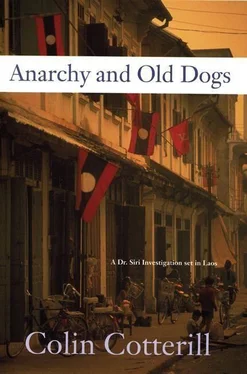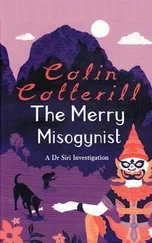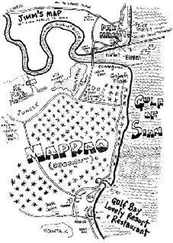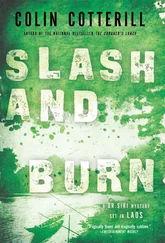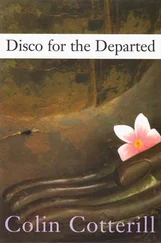Colin Cotterill - Anarchy and the Old Dogs
Здесь есть возможность читать онлайн «Colin Cotterill - Anarchy and the Old Dogs» весь текст электронной книги совершенно бесплатно (целиком полную версию без сокращений). В некоторых случаях можно слушать аудио, скачать через торрент в формате fb2 и присутствует краткое содержание. Жанр: Криминальный детектив, на английском языке. Описание произведения, (предисловие) а так же отзывы посетителей доступны на портале библиотеки ЛибКат.
- Название:Anarchy and the Old Dogs
- Автор:
- Жанр:
- Год:неизвестен
- ISBN:нет данных
- Рейтинг книги:3 / 5. Голосов: 1
-
Избранное:Добавить в избранное
- Отзывы:
-
Ваша оценка:
- 60
- 1
- 2
- 3
- 4
- 5
Anarchy and the Old Dogs: краткое содержание, описание и аннотация
Предлагаем к чтению аннотацию, описание, краткое содержание или предисловие (зависит от того, что написал сам автор книги «Anarchy and the Old Dogs»). Если вы не нашли необходимую информацию о книге — напишите в комментариях, мы постараемся отыскать её.
Anarchy and the Old Dogs — читать онлайн бесплатно полную книгу (весь текст) целиком
Ниже представлен текст книги, разбитый по страницам. Система сохранения места последней прочитанной страницы, позволяет с удобством читать онлайн бесплатно книгу «Anarchy and the Old Dogs», без необходимости каждый раз заново искать на чём Вы остановились. Поставьте закладку, и сможете в любой момент перейти на страницу, на которой закончили чтение.
Интервал:
Закладка:
There was no doubt this was a small thing. It wouldn’t make a jot of difference to anyone beyond the village. Judge Haeng wouldn’t give him a medal for solving such a case. In fact he’d drag Siri over the linoleum again for wasting his time. But this was one small thing he was determined to do well. Even if the country was crumbling around him he would solve this mystery. He willed himself into Sing’s mind.
“Think trouble. Think mischief. How would I get the attention I need to bring my father back home? Just how bad would I have to be? It’s midday, Wednesday. I’ve bored myself into a state of unprecedented naughtiness. I need something to boast about at school. ‘You lot wouldn’t believe what I did yesterday, I…’ Come on, young Sing, tell Grandpa Siri what you did.”
The sun had burned through the midday cloud and was casting a distinct black-and-white dividing line beneath the half bridge. Siri walked out into the dazzle and shouted, “What can I do to show you all I’m a man?”
As the blinding light slowly cleared from his eyes and the blur of Pakse all around regained its rightful texture, one large shape on the far bank loomed like a challenge. It said, “I am the symbol of power and affluence. I am better than you and I am invincible.”
And Siri knew where Sing had gone that Wednesday.
Brother Fred was all atwitter. The one case he’d accepted personally had grown out of all proportion to have national-nay, international-repercussions. He hadn’t handled it at all well. First he’d lost the woman and then set about finding her. His inborn Catholic pessimism had convinced him she’d met the same horrible fate as her husband. He’d used the collective weight of the organization he represented to have a search conducted. He’d talked by phone for half an hour with the head of his mission in Bangkok. He’d even prayed for their safety. His Thai Christian interpreter had told him, “I admire your concern, Father. But it’s looking more like an affair of the heart than a kidnapping.”
“How so?” Brother Fred had asked.
“The chief of that section, Bunteuk, he’s reported his wife missing, too. The rumors on that block are that the new chap had a fling with Bunteuk’s wife and they ran off together.”
“Oh, I say.”
“Some believe the fat girl was so distraught she fled the camp, vowing to go home to Laos.”
It was a story that would certainly have placated the young Irishman had the fat girl and the philandering husband not walked into his office some ten minutes after the interpreter had left. The man, bruised and cut about the face, was carrying a large box full of rolled paper and files. They closed the office door behind them, locked it, and despite being already in a refugee camp they claimed refugee status. Brother Fred was flummoxed. He’d never seen his little office as a potential island of diplomatic immunity. But international law wasn’t his forte so he made tea for three and listened to what the couple had to say.
Dtui had certainly considered her number to be up when she heard the cough. She’d turned slowly, expecting at the very least to see the barrel of a gun pointed at her, at the very worst to hear it go off. But instead, standing between floor-to-ceiling stacks of white wood crates labeled TOXIC, was an exact replica of the metal cage in which she’d spent the previous night. And sitting cross-legged on its floor was Phosy. He pointed out where she might be able to find the key to his cell, and while Dtui searched frantically for it, Phosy described his meeting with Bunteuk and his henchmen.
“I have no idea why they haven’t killed me,” he said. “It appears someone recognized me. If they knew I was a spy, bumping me off would have been the logical move. All I can imagine is that they needed me alive to find out what we already know about their activities. But, I ask you, why not torture me straightaway and have done with it?”
“I hope you didn’t make that suggestion to them,” Dtui said, rummaging through cupboards and shelves. She came across a bunch of keys in a drawer in a wooden desk and smiled. “Victory.”
Phosy continued as she worked through them.
“It seemed as if Bunteuk would have preferred to blow my head off there and then,” Phosy continued, remarkably calmly given their predicament. “But something or someone was stopping him. He made no bones about what he thought of me.”
The padlock clicked and Dtui pulled open the door.
Their embrace said everything their mouths hadn’t been able to. Phosy looked over to the stairway.
“Did you pull the tunnel cover back?”
“No, I thought I’d have to get out of here in a hurry.”
“Then we’d better get moving.”
Despite the urgency of their circumstances, they went first to the office and information corner and looked at all the documentation.
“Where do we start?”
Everything they’d collected there now sat on the large meeting table at the back of Brother Fred’s office. Dtui’s faith in the young cleric was based entirely on her intuition. She’d never met an Irishman so she didn’t know whether they were a trustworthy race, but there was something about his eyes that reminded her of a faithful dog she’d befriended when she was little. Phosy agreed he was the best, if not the only, option. They were deep in anticommunist territory. They weren’t about to wander up to a policeman and receive any sympathy. He doubted even Brother Fred would be too distressed about a plot to oust the evil socialists from Laos. But they both knew the church had certain rules when it came to human rights. The only concern was the current Thai refusal to call the Lao “refugees.” It was merely word choice but it prevented the United Nations Human Rights Commission from operating in the camp. Because of this vacuum, the definition of human rights in this case was left to the Thai government, and the Thai military would have every reason to waive the rights of Phosy and Dtui.
On their march through the camp along the busiest main thoroughfares to the Church of the Christian Brotherhood office, they’d gone through the options for Brother Fred. A
Thailand that changed its junta more often than Phosy changed his undershorts wasn’t about to be embarrassed by international community reaction to a little coup attempt in Laos. The UN would issue a strong written condemnation and someone in Bangkok would light a barbeque with it. No one ever quaked in their shoes when the UN roared.
No. They could forget political channels. Their priority was to get themselves back to Laos with the information they’d gathered. To that end, they needed access to a telephone line and a car. Brother Fred had one of each, but he was a nervous wreck. While Dtui held Brother Fred’s hand and calmed him, Phosy made several calls. He finally put down the phone with a large smile on his face. Dtui translated that the governor of Ubon was devastated to hear that his province was being used to launch an attack on Laos. She pointed out how much undeclared revenue Ubon was making from illegal logging deals with the Lao military in Champasak. The financial rather than the moral indignation argument made sense to the Irishman and he had no reason to doubt that the governor might want to see the evidence they’d collected for himself.
Dtui uncrossed her fingers and brought up the matter of transport. Brother Fred had no intention of handing over his mission’s four-wheel drive, but he was prepared to drive them. The white Land Rover, with a logo of a benevolent Jesus surrounded by Indochinese children stenciled on the doors, went in and out of the camp twenty times a day. The gate guards at the permanently up barrier didn’t stop their conversation, or cast more than a cursory glance at the vehicle. If there were two Lao in the backseat, they were meant to be there.
Читать дальшеИнтервал:
Закладка:
Похожие книги на «Anarchy and the Old Dogs»
Представляем Вашему вниманию похожие книги на «Anarchy and the Old Dogs» списком для выбора. Мы отобрали схожую по названию и смыслу литературу в надежде предоставить читателям больше вариантов отыскать новые, интересные, ещё непрочитанные произведения.
Обсуждение, отзывы о книге «Anarchy and the Old Dogs» и просто собственные мнения читателей. Оставьте ваши комментарии, напишите, что Вы думаете о произведении, его смысле или главных героях. Укажите что конкретно понравилось, а что нет, и почему Вы так считаете.
